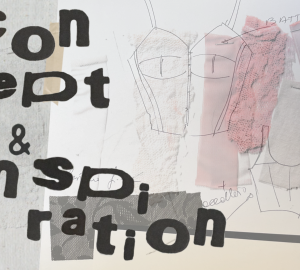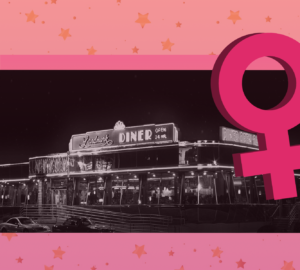Warrior Woman of the Week: The Suffragettes
This weekly series shines a light on influential and inspirational women.
Illustrated by Dana Sanmar and
animated by Alexandra S. Badiu
The Warrior Woman of the Week series must begin at the birth of feminism — the first wave. The first wave took place between 1848-1920. All women today can thank the first wave for fighting for our rights to hold property, work for pay, vote, enter into contracts, go to college, earn higher degrees, enter professions and live on our own without the “protection” of a male guardian or husband. First wave feminists referred to themselves as the “new woman” and took unprecedented strides toward women’s rights.
Thus, it is only fitting that our first Warrior Woman of the Week be a compilation of the group of women who fought for our right to vote — the suffragettes. A few of the most notable names in this powerful lineup of women are Sojourner Truth, Elizabeth Cady Stanton, Emmeline Pankhurst, Lucretia Mott, Susan B. Anthony, Alice Stone Blackwell and Mary Wollstonecraft. Unfortunately, it would take the entire series to discuss each and everyone of their trailblazing lives so this week we will focus on their achievements as a whole.
The fight for women’s suffrage began small in the 1820s before growing into a national movement which led to the Seneca Falls Convention in 1848. The convention was held in Seneca Falls, NY, and according to the House of Representatives History Archive, Stanton, “a mother of four from upstate New York,” and Mott, “a Quaker abolitionist,” were the convention’s main organizers. Around one hundred women, and even a few men such as Fredrick Douglass, attended the convention and Anthony drafted the “Declaration of Sentiments, Grievances, and Resolutions.” This document mimicked the diction of the Declaration of Independence but included the rights that women should hold because “we hold these truths to be self-evident: that all men and women are created equal.”
In 1870, the 15th Amendment was adopted into the constitution allowing all African American men to vote, but still denied women of any skin color the right. When word of the 15th amendment spread, Stanton and Anthony formed the National Woman Suffrage Association (NWSA) on the belief the amendment should include women. Following the formation of the NWSA, abolitionist Lucy Stone and Henry Blackwell, who believed the 15th Amendment would not pass if it included women but that women’s suffrage could be gained at the state level, formed the American Woman Suffrage Association (AWSA). In 1878, the NWSA lobbied Congress into forming committees to debate an amendment that would allow women to vote. Unfortunately, it was defeated once it reached the Senate floor in 1886.
By 1890, the NWSA and AWSA merged to form the National American Woman Suffrage Association (NAWSA) and began lobbying in each state for women’s suffrage. After six years of hard work, Colorado, Utah and Idaho adopted the amendment. Following the deaths of Stanton (1902) and Anthony (1906), Carrie Chapman Catt stepped in as the leader of the NAWSA. In the next eight years, seventeen more states adopted the amendment granting women voting rights.
On Aug. 28, 1917 women marched and picketed in DC in order to call for President Woodrow Wilson to support the amendment. Finally, on Aug. 26, 1920, the 19th Amendment was adopted into the U.S. Constitution and women received the right to vote throughout the nation. These are fact we must not forget as we, too, march through D.C. wearing pink cat ears and picketing for women’s rights in current society. We must not forget the women who came before us and everything we are fighting for.
As women in 2018, we must not forget the long fight that the Suffragettes fought for our right to vote. We often take our right to vote for granted, and some of us even opt out of voting all together. Yet, we had a historical election in 2016 when Hilary Clinton became the first female presidential candidate for a major party and we had the chance to vote for her. Whether or not you supported her politics, and despite the fact that she didn’t win, we must not forget the women who fought for this to even be a possibility.
Don’t shrug the next election off as a “waste of time” or think “my vote doesn’t count,” because hundreds of women fought, lobbied and protested for your right to vote. Stanton and Anthony died without ever having the right that they fought for so hard. Remember the suffragettes, that first wave of feminists, and their contributions.
Check back every week for a new installment of “Warrior Woman of the Week.”
























